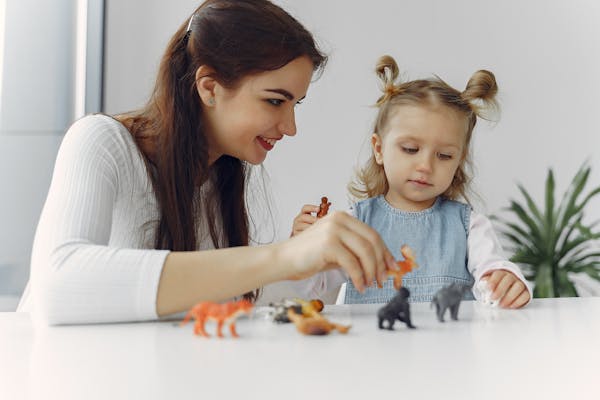The importance of play in early childhood cannot be overstated. Among the myriad of play options available, construction toys, akin to Lego Technic, have emerged as a vital tool in fostering various developmental skills in children. Their impact on early childhood development is profound and multifaceted, making them an indispensable part of a child’s growth journey.
Enhancing Cognitive Skills through Structured Play
Construction toys are not just about building structures; they’re a playground for the brain. These toys challenge young minds to think critically, develop spatial awareness, and enhance problem-solving skills. As children manipulate the pieces to create shapes and structures, they are essentially conducting a trial-and-error process, which is a foundational aspect of cognitive development. This form of structured play helps develop their thinking skills and encourages them to think outside the box. It also promotes memory retention and understanding of geometric concepts. Children learn to recognise patterns and sequences, which are essential skills in mathematics and science.
Fostering Creativity and Imagination
One of the remarkable benefits of these toys is their ability to stimulate creativity and imagination. Unlike many other toys, construction sets offer endless possibilities, enabling children to create everything from simple shapes to complex models. This freedom to invent and create provides a vast canvas for children to express their creativity, which is crucial for cognitive and emotional development. Through this creative process, children learn to express themselves and their thoughts, which is important for emotional intelligence. It also helps in developing their narrative skills as they often create stories around the structures they build.
Developing Fine Motor Skills and Hand-Eye Coordination
The intricate nature of construction toys necessitates precision and careful handling, thereby enhancing fine motor skills and hand-eye coordination. As young children pick up small pieces, place them together, and manipulate them to fit into specific spots, they develop dexterity and control over their hand movements. This skill is essential not only in play but also in academic tasks like writing and using scissors. The repetitive action of connecting and disconnecting pieces also improves muscle strength in the hands and fingers, preparing them for more complex tasks. Additionally, this development plays a crucial role in self-care skills such as tying shoes or buttoning clothes.
Encouraging Teamwork and Social Skills
When children engage in building activities with peers or family members, they learn valuable social skills such as teamwork, communication, and cooperation. They learn to share ideas, resolve conflicts, and work collaboratively towards a common goal. These interpersonal skills are essential for personal and professional success in later life. Building together also helps children understand different perspectives and respect others’ ideas, which is key in developing empathy. In addition, it can help shy or introverted children feel more connected and involved in group activities, increasing their social confidence.
Building Persistence and Resilience
The kit also teaches children the virtue of perseverance. Building complex models takes time, effort and patience. Children learn to persevere through challenges and setbacks, an important lesson in resilience. The sense of accomplishment after completing a complex model is invaluable in boosting their confidence and self-esteem. This experience teaches them that success often comes after repeated attempts and failures, which instills in them a growth mindset. Moreover, it helps them in setting goals and working systematically towards achieving them, which is a vital life skill.
In conclusion, the role of construction toys, similar to Lego Technic, in early childhood development is undeniable. They not only provide hours of entertainment but also contribute significantly to the cognitive, creative, physical, and social growth of children. By integrating these toys into playtime, parents and educators can offer children a robust foundation for lifelong learning and development.
